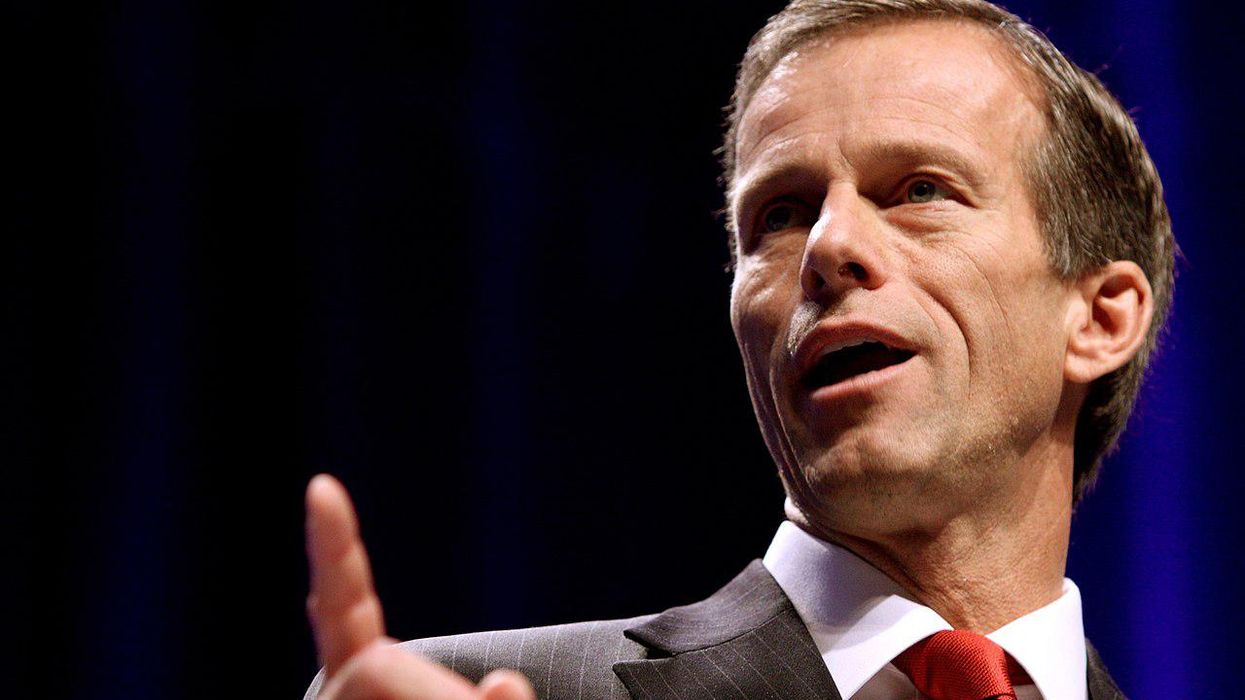Taliban seeks to reshape Afghanistan’s schools to push their ideology

Afghan students will get more lessons in religion and resistance under the Taliban’s proposed changes to their schools. Sanaullah Seiam

Afghan students will get more lessons in religion and resistance under the Taliban’s proposed changes to their schools. Sanaullah Seiam
November 11, 2024
The Taliban takeover of Afghanistan in 2021 was a blow for education across the country – but especially for girls and women. Since then, the Taliban’s leaders have outlawed education for girls after sixth grade, expanded religious seminaries known as madrasas ninefold and reintroduced corporal punishment in schools.
Now, the Taliban are continuing their assault on education for both boys and girls by changing the curriculum in grades 1-12. They have already revised textbooks up to eighth grade, and they’re on track to finish the rest within months. After completion, the revised curriculum will go up for approval by the Taliban’s supreme leader and will likely be followed by swift implementation. The process is straightforward. The supreme leader of the Taliban controls education policy – including the curriculum. Once submitted to him, he has no reason to reject or delay the implementation.
As an educational policy scholar who pushed for educational progress in Afghanistan before the Taliban takeover, I believe these changes echo the tactics of the Soviet-backed regime in the 1980s to impose an ideology through textbooks. They also reflect the stifling climate of the 1990s, which promoted violence and suppressed critical thinking in education. By controlling education, the Taliban aims to instill their totalitarian and extremist religious-based ideology in young minds, ensuring their grip on power for generations to come
The Taliban takeover of Afghanistan in 2021 was a blow for education across the country – but especially for girls and women. Since then, the Taliban’s leaders have outlawed education for girls after sixth grade, expanded religious seminaries known as madrasas ninefold and reintroduced corporal punishment in schools.
Now, the Taliban are continuing their assault on education for both boys and girls by changing the curriculum in grades 1-12. They have already revised textbooks up to eighth grade, and they’re on track to finish the rest within months. After completion, the revised curriculum will go up for approval by the Taliban’s supreme leader and will likely be followed by swift implementation. The process is straightforward. The supreme leader of the Taliban controls education policy – including the curriculum. Once submitted to him, he has no reason to reject or delay the implementation.
As an educational policy scholar who pushed for educational progress in Afghanistan before the Taliban takeover, I believe these changes echo the tactics of the Soviet-backed regime in the 1980s to impose an ideology through textbooks. They also reflect the stifling climate of the 1990s, which promoted violence and suppressed critical thinking in education. By controlling education, the Taliban aims to instill their totalitarian and extremist religious-based ideology in young minds, ensuring their grip on power for generations to come
.
The Quran, Islam’s sacred text, will become a more prominent part of Afghan education under a series of proposed changes by the Taliban. Wakil Kohsar via Getty Images
The curriculum changes
Afghanistan’s education system is centralized, meaning all schools follow a single curriculum. The current textbooks are the result of two decades of reforms that followed the country’s recovery from the Soviet invasion and civil wars of the 1980s and 1990s.
Since 2001, when the Taliban’s last regime fell, the Ministry of Education, in collaboration with international developmental agencies, undertook a critical revision of the national curriculum. This initiative aimed to make curriculum and textbooks inclusive, nondiscriminatory and free from promotion of violence – a departure from previous textbooks that included illustrations of tanks, rocket launchers and automatic weapons.
In the last decade before the Taliban regained power, the Ministry of Education was still attempting to reform curriculum to focus on students’ personal and economic growth. Unfortunately, the ministry never completed the reforms.
Taliban soldiers in Kabul, Afghanistan, on Oct. 16, 2024. Wakil Kohsar via Getty Images
Within a few months after their takeover in August 2021, senior Taliban leaders criticized the previous education system and curriculum, saying it was brainwashing Afghan youth and weakening religious values. They called for a reeducation campaign.
Since then, the Taliban have been revising the curriculum and aggressively rewriting textbooks for grades 1-12. This is based on 26 recommendations from their education commission. Some of the changes approved by the commission include:
1.) Removing subjects like formal art, civil education and culture. Instead, schools are increasing time spent on religious studies.
2.) Removing content about human rights, women’s rights, equal rights, freedoms, elections and democracy.
3.) Removing all images of living beings from textbooks, including pictures of humans, animals, sports and anatomy. The Taliban believe that only God creates living beings, and producing or distributing images of God’s creation is prohibited.
4.) Adding religious material to the curriculum that enforces Taliban narratives. This includes teachings that justify violence against those who resist or oppose the Taliban’s views.
5.) Shaping student behaviors to fit the Taliban’s vision of society, similar to what they defined in recent vice and virtue laws that ban women’s voices and bare faces in public, among other rules.
6.) Requiring schools to teach and assess students on “emirate studies,” which glorify Taliban leaders and their history by characterizing the Taliban takeover as a defeat of secular values, including equal rights, civil society and democracy.
The Taliban have also banned women from studying abroad. In addition, they have prohibited the sale, purchase and reprinting of more than 400 science and philosophy books and confiscated at least 50,000 books on democracy, social and civil rights, art, literature and poetry from publishing houses, bookstores and public libraries.
A 2023 Human Rights Watch report noted an increase in corporal punishment in schools. Even some teachers of nonreligious subjects, like math and science, now have to pass the religious tests to remain employed.
Beyond shaping thought processes, the Taliban aim to influence students’ actions. Through rigid rules and corporal punishments – including humiliation, beating, slapping and foot whipping – they seek to produce immediate behavioral changes that reflect their desired norms. Their ultimate goal is to cultivate individuals who embody the regime’s values and ideologies.
Consequences for Afghan students – and the world
During their first regime from 1995-2001, the Taliban used textbooks with biased content that promoted violent jihad. For example, the alphabet taught to first graders included teachings like “J” stands for jihad and “M” for mujahideen – referring to Islamic guerrilla fighters.
They increased religious education to 50% of the curriculum and banned art, music and photography. They deemed music against God’s will, according to their interpretation of Sharia.
As a result, academic freedom vanished. Student enrollment dropped. Families lost trust in schools, and many teachers left the profession, leading to the eventual collapse of the education system in the 1990s.
The Taliban are threatening to do the same today with their latest curriculum changes. Schools may turn into indoctrination centers instead of places for real learning. I fear that the altered curriculum could breed mistrust in public education. Furthermore, the Taliban removed the 2008 law that made school mandatory. As a result, many parents may pull their kids from schools again

The Quran, Islam’s sacred text, will become a more prominent part of Afghan education under a series of proposed changes by the Taliban. Wakil Kohsar via Getty Images
The curriculum changes
Afghanistan’s education system is centralized, meaning all schools follow a single curriculum. The current textbooks are the result of two decades of reforms that followed the country’s recovery from the Soviet invasion and civil wars of the 1980s and 1990s.
Since 2001, when the Taliban’s last regime fell, the Ministry of Education, in collaboration with international developmental agencies, undertook a critical revision of the national curriculum. This initiative aimed to make curriculum and textbooks inclusive, nondiscriminatory and free from promotion of violence – a departure from previous textbooks that included illustrations of tanks, rocket launchers and automatic weapons.
In the last decade before the Taliban regained power, the Ministry of Education was still attempting to reform curriculum to focus on students’ personal and economic growth. Unfortunately, the ministry never completed the reforms.

Taliban soldiers in Kabul, Afghanistan, on Oct. 16, 2024. Wakil Kohsar via Getty Images
Within a few months after their takeover in August 2021, senior Taliban leaders criticized the previous education system and curriculum, saying it was brainwashing Afghan youth and weakening religious values. They called for a reeducation campaign.
Since then, the Taliban have been revising the curriculum and aggressively rewriting textbooks for grades 1-12. This is based on 26 recommendations from their education commission. Some of the changes approved by the commission include:
1.) Removing subjects like formal art, civil education and culture. Instead, schools are increasing time spent on religious studies.
2.) Removing content about human rights, women’s rights, equal rights, freedoms, elections and democracy.
3.) Removing all images of living beings from textbooks, including pictures of humans, animals, sports and anatomy. The Taliban believe that only God creates living beings, and producing or distributing images of God’s creation is prohibited.
4.) Adding religious material to the curriculum that enforces Taliban narratives. This includes teachings that justify violence against those who resist or oppose the Taliban’s views.
5.) Shaping student behaviors to fit the Taliban’s vision of society, similar to what they defined in recent vice and virtue laws that ban women’s voices and bare faces in public, among other rules.
6.) Requiring schools to teach and assess students on “emirate studies,” which glorify Taliban leaders and their history by characterizing the Taliban takeover as a defeat of secular values, including equal rights, civil society and democracy.
The Taliban have also banned women from studying abroad. In addition, they have prohibited the sale, purchase and reprinting of more than 400 science and philosophy books and confiscated at least 50,000 books on democracy, social and civil rights, art, literature and poetry from publishing houses, bookstores and public libraries.
A 2023 Human Rights Watch report noted an increase in corporal punishment in schools. Even some teachers of nonreligious subjects, like math and science, now have to pass the religious tests to remain employed.
Beyond shaping thought processes, the Taliban aim to influence students’ actions. Through rigid rules and corporal punishments – including humiliation, beating, slapping and foot whipping – they seek to produce immediate behavioral changes that reflect their desired norms. Their ultimate goal is to cultivate individuals who embody the regime’s values and ideologies.
Consequences for Afghan students – and the world
During their first regime from 1995-2001, the Taliban used textbooks with biased content that promoted violent jihad. For example, the alphabet taught to first graders included teachings like “J” stands for jihad and “M” for mujahideen – referring to Islamic guerrilla fighters.
They increased religious education to 50% of the curriculum and banned art, music and photography. They deemed music against God’s will, according to their interpretation of Sharia.
As a result, academic freedom vanished. Student enrollment dropped. Families lost trust in schools, and many teachers left the profession, leading to the eventual collapse of the education system in the 1990s.
The Taliban are threatening to do the same today with their latest curriculum changes. Schools may turn into indoctrination centers instead of places for real learning. I fear that the altered curriculum could breed mistrust in public education. Furthermore, the Taliban removed the 2008 law that made school mandatory. As a result, many parents may pull their kids from schools again
.
Afghan school girls walk back home in Balkh province on Oct. 22, 2024.

Afghan school girls walk back home in Balkh province on Oct. 22, 2024.
Atif Aryan via Getty Images
The ideologically driven curriculum also raises international concerns and has already led to cuts in foreign aid. Donors won’t support institutions that promote discriminatory ideologies. This is straining an already vulnerable education system, threatening its survival.
Ultimately, the Afghan people will bear the brunt of these policies, but the effects could spill beyond the country’s borders and impact the world.
Enayat Nasir, Doctoral Research Assistant in Educational Policy, University at Albany, State University of New York
This article is republished from The Conversation under a Creative Commons license. Read the original article.
The ideologically driven curriculum also raises international concerns and has already led to cuts in foreign aid. Donors won’t support institutions that promote discriminatory ideologies. This is straining an already vulnerable education system, threatening its survival.
Ultimately, the Afghan people will bear the brunt of these policies, but the effects could spill beyond the country’s borders and impact the world.

Enayat Nasir, Doctoral Research Assistant in Educational Policy, University at Albany, State University of New York
This article is republished from The Conversation under a Creative Commons license. Read the original article.


















